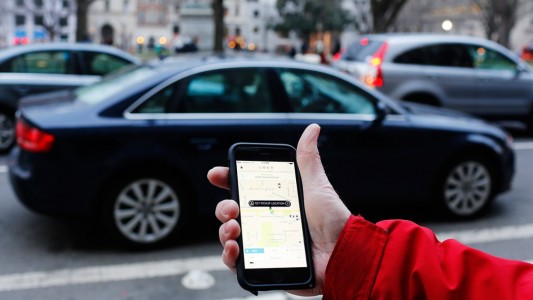Widgetized Section
Go to Admin » Appearance » Widgets » and move Gabfire Widget: Social into that MastheadOverlay zone
Sidewalk Labs, Transportation for America Help Cities Address Transportation Problems
The views expressed are those of the author and do not necessarily reflect the views of ASPA as an organization.
By The Intersector Project
June 28, 2016

This month, one city will be announced the winner of the U.S. Department of Transportation’s (DOT) Smart City Challenge. The winner will receive up to $40 million to integrate innovative technologies, from self-driving cars to smart sensors, into their transportation planning. The DOT is choosing the winner from seven finalist cities, narrowed down from 78 applications received.
The application process encouraged city officials to think about how the future of urban mobility could transform their city. Recognizing that it would be a shame for these good ideas to go to waste — and that many cities need additional support to solve their biggest transportation challenges — Transportation for America (T4A) and Sidewalk Labs will work together to help some of the applicants that aren’t chosen, and other cities across the United States, solve big transportation problems with new technology.
Nonprofits and the private sector are playing an increasingly important role in transportation decision making today, explained U.S. Secretary of Transportation Anthony Foxx in a Brookings Institution webinar earlier this year.
In one interesting example of this approach, New Balance partnered with the Massachusetts Bay Transportation Authority (MBTA) to build its own commuter rail station. When the company decided to expand its headquarters and build other amenities in a Boston neighborhood that wasn’t served by public transit, instead of waiting for the MBTA, which is currently $9 million in debt, to fix the problem, they decided to work alongside the public sector to solve this issue. Transportation officials from the state oversaw the design of the station, but the funding, between $14 million and $16 million, comes exclusively from New Balance.
T4A and Sidewalk Labs each bring key assets and expertise to their partnership, which will work with local government officials across the country. T4A, an alliance of government, business, and civic leaders with a history of working with state and local governments on transportation, will bring experience working with the public sector on important transportation issues. Sidewalk Labs, a subsidiary of Google’s parent company, Alphabet, Inc., works with cities to solve complex urban problems and brings the technological expertise. (One of Sidewalk Labs’ first projects is LinkNYC, which is equipping New Yorkers with kiosks across the city that provide free public Wi-Fi, phone calls, device charging, and a tablet for Internet browsing, access to city services, maps and directions.)
One of the main goals of the T4A and Sidewalk Labs partnership is to help cities create “connected streets,” which builds upon the concept of complete streets. While the complete streets movement aims to redesign urban infrastructure so it accommodates cars, pedestrians, bicyclists and public transit riders, the concept of connected streets advances “the concept of complete streets into the digital realm … [providing] tech-enabled, multimodal options that expand access to job opportunities across the region” and ultimately “reduce the divide between what I’d call the transportation haves and have-nots,” according to a recent Q&A between Sidewalk Labs and T4A.
One example is helping cities figure out how best to work with ride-sharing services like Uber. While many cities have gone to battle with Uber, new research from the Shared-Use Mobility Center (SUMC) and American Public Transportation Association suggests that public transit and rise-sharing services are complementary. “When comparing people who use public transit with those who pair it with newer forms of shared mobility, the latter group drove less, was less likely to buy a new car, and was more likely to save money on transportation,” reported CityLab recently. Instead of choosing to let ride-sharing services run or shutting them down, says T4A Director James Corless, “I think we need to begin having cities understand how to shape this conversation and frankly shape their future. They need to be embracing and using these advances in tech-enabled mobility to meet these broader goals.”
While new technology will be important for the partnership’s work, the organizations will not be focusing on technology for technology’s sake. Sidewalk Labs notes in the Q&A, “The Sidewalk-T4A collaborative can empower cities to lead the conversation about how to meet their mobility needs with technology, rather than seeing tech as an end in itself.”
Author: The Intersector Project is a 501(c)(3) nonprofit organization dedicated to advancing cross-sector collaboration as a way to address society’s pressing issues. We work to provide practitioners in every sector with the tools they need to implement collaborative solutions to complex problems.


Ray Ward
July 3, 2016 at 8:14 pm
I like the thought of serving the cities with a transportation service with the best of technology. I am a for profit company desiring to know how I may become a like company and connected to serve more and better.